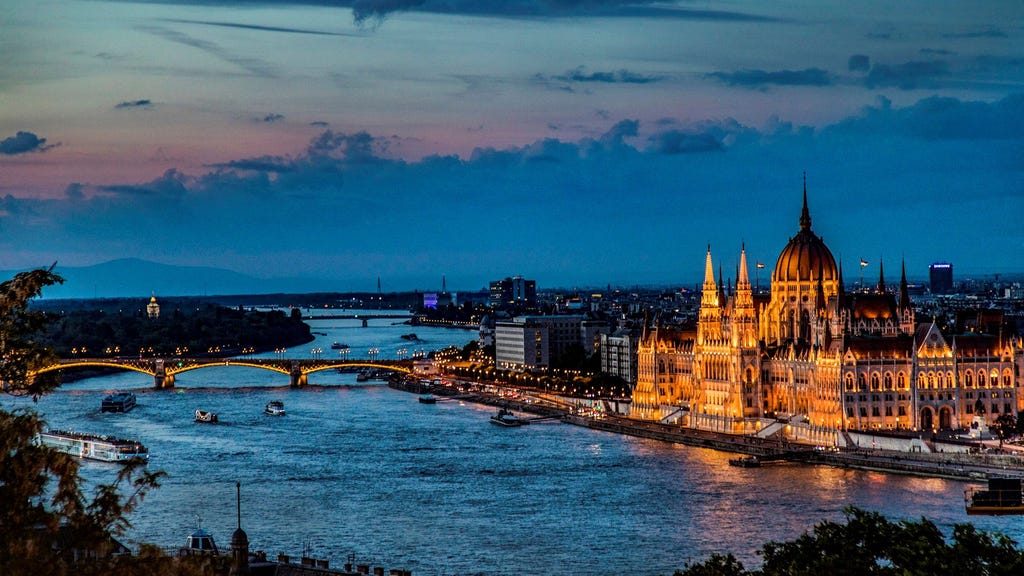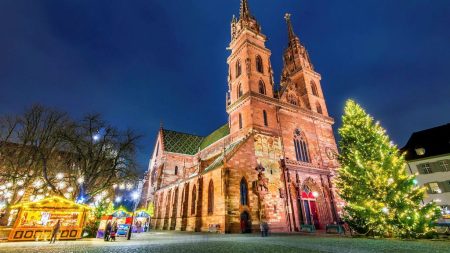Budapest, a city steeped in history and architectural grandeur, captivates visitors with its opulent thermal baths, a legacy of Roman and Ottoman influences. These bathhouses, more akin to palaces with their intricate mosaics, soaring domes, and steaming pools, offer a rejuvenating experience, blending historical charm with modern wellness. The Széchenyi Thermal Baths, for example, boast neo-Baroque splendor, while the Gellért Baths, nestled within a magnificent Art Nouveau hotel, evoke a sense of timeless elegance. Beyond the baths, Budapest’s cityscape is a tapestry of architectural styles, reflecting its rich and complex past. From the imposing Buda Castle, a UNESCO World Heritage Site that has witnessed centuries of royal power and political intrigue, to the Hungarian Parliament Building, a neo-Gothic masterpiece that stands as a symbol of national pride, Budapest’s landmarks offer a glimpse into the city’s fascinating narrative. The Fisherman’s Bastion, with its fairytale turrets and panoramic city views, and the Matthias Church, a masterpiece of Gothic architecture, further enrich the city’s architectural tapestry.
Complementing the city’s visual splendor is its vibrant culinary scene. Budapest’s restaurants, ranging from traditional Hungarian kitchens to sophisticated Michelin-starred establishments, offer a delectable array of gastronomic experiences. Traditional Hungarian cuisine, known for its hearty stews, flavorful paprika-infused dishes, and generous portions, provides a taste of authentic local flavors. Dishes like goulash, a rich beef stew, and chicken paprikash, a creamy chicken dish, are culinary staples. Beyond traditional fare, Budapest’s burgeoning restaurant scene embraces international influences and culinary innovation, offering visitors a diverse palette of flavors to explore. From contemporary European cuisine to Asian-inspired dishes, Budapest’s culinary offerings cater to every taste and preference.
The Hungarian wine tradition, deeply rooted in the country’s terroir and history, further enhances the city’s culinary appeal. Hungary’s wine regions, such as Tokaj, Eger, and Villány, produce a variety of world-renowned wines, from the sweet Tokaji Aszú to the robust Egri Bikavér (Bull’s Blood). Budapest’s wine bars and cellars provide an opportunity to sample these exquisite wines, accompanied by knowledgeable sommeliers who can guide visitors through the nuances of Hungarian viticulture. The city’s wine culture offers a unique perspective on Hungarian history and tradition, as winemaking has played a significant role in the country’s cultural identity for centuries.
No culinary exploration of Budapest is complete without indulging in the city’s legendary pastries and desserts. Budapest’s confectioneries, with their elegant interiors and tempting displays, are veritable temples of sweetness. From the iconic Dobos Torte, a layered sponge cake with rich chocolate buttercream and caramelized sugar topping, to the decadent Eszterházy Torte, a multi-layered almond and buttercream confection, Budapest’s pastries are a testament to the city’s rich baking heritage. These delectable creations, often served with a strong cup of Hungarian coffee, offer a delightful conclusion to any meal or a sweet afternoon treat. The city’s pastry chefs, masters of their craft, continue to uphold the traditions of Hungarian baking while also incorporating modern techniques and innovative flavors.
Beyond the architectural wonders, thermal baths, and culinary delights, Budapest offers a vibrant cultural scene. The city’s numerous museums, art galleries, and theaters showcase the richness of Hungarian art, history, and culture. The Hungarian National Museum, with its vast collection of artifacts spanning the country’s history, provides a comprehensive overview of Hungarian heritage. The Museum of Fine Arts houses an impressive collection of European art, while the Hungarian National Gallery focuses on Hungarian art from the Middle Ages to the present day. The city’s vibrant theater scene offers a diverse range of performances, from classical opera and ballet to contemporary plays and experimental theater. Budapest’s cultural institutions provide a deeper understanding of the city’s rich artistic and intellectual heritage.
In conclusion, Budapest is a city of captivating contrasts, seamlessly blending its rich history with modern dynamism. From the grandeur of its architectural landmarks and the rejuvenating thermal baths to the vibrant culinary scene and the thriving cultural institutions, Budapest offers a multifaceted experience for every traveler. The city’s unique charm lies in its ability to embrace its past while embracing the present, creating an atmosphere that is both nostalgic and invigorating. Whether exploring the historic streets, indulging in culinary delights, or immersing oneself in the city’s cultural offerings, Budapest leaves a lasting impression on those who visit, beckoning them to return and discover more of its hidden treasures.














